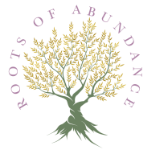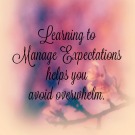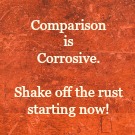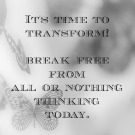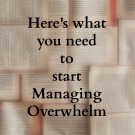In our ever-changing fast-paced world it can be hard to stay on course, to follow our own true north. We’re bombarded with “shoulds” and “musts,” “ought to” and “have to.” One of the best ways to stay true to yourself and start making more effective decisions, both personally and professionally, is to begin setting intentions. And intentions and goals are sometimes confused. Here’s how to tell the difference.
Goals are external, future-oriented, and achievement-based. You want a new car, a new job, a particular pair of shoes or to lose ten pounds. Achieving these things comes with a tangible reward: the car, the shoes, the better fitting pants. They also come with an emotional reward which can sadly sometimes be fleeting. How many times have you reached a goal only to feel excited for about twenty-seven seconds before feeling deflated again?
Intentions are internal, present-moment oriented, and feelings based. An intention is something you set as a way you want to be, or feel, or show up as, every day. By setting an intention for the present moment, you will take on this intention (or way of being) whether or not you are working on your goals. A few examples of intentions are:
- I show up with patience and tolerance
- I am curious about my surroundings
- I notice and appreciate the beauty of my environment
Now that you’re familiar with the difference between goals and intentions, it’s time to discover how intentional living can benefit you starting today.
Living Intentionally is Your Legacy
Living a life of intention, and focusing on how you show up in the present moment, is your legacy. What you leave behind is so much more than the tangible things you produce, even if those things change the world. Think of Mother Theresa. She showed up in her work with kindness, compassion, and empathy as she helped care for the poorest of the poor. Her spirit of caring is a part of her legacy as is her willingness to serve others selflessly.
By setting intentions, you also are a role model to others, whether that be your children, your coworkers, or your community. A popular saying is, “Be the change you want to see in the world.” Notice the first word in that – “Be.” To be the change, you have to show up as that person consistently to accomplish the change. Yes, the work of change is vital, but being that person (and becoming that person) is the result of setting powerful intentions.
Living Intentionally Shifts Your Focus from Destination to Journey
Reflecting on how you want to feel and how you want to show up in the world each day, and then setting meaningful and specific intentions, allows you to focus more attention on your day to day life and health, while also holding your long-term goals in mind. It’s this shifting from destination to journey that can keep you resilient, persistent, and grounded when things don’t go as planned.
Remember that fleeting feeling of excitement I mentioned in regards to goals? One of the reasons people feel a momentary high, only to then feel deflated, is because they become so fixated on the outcome that they miss the small moments; they miss what’s going on along the journey as they’re achieving the experience (having lost ten pounds) or acquiring the tangible thing (car or shoes). How you show up each day for the journey will determine not only how you savor the outcome of your hard work, but also how you ultimately the moment when you reach your goal.
Living Intentionally Grounds Effective Decision Making
Because intentions are inward-focused and feelings based, they are an excellent way to keep you grounded in effective decision making. One of the biggest challenges many of us face is being asked and expected to do certain things that conflict with our personal sense of values.
Non-competitive people struggle in highly competitive work environments because they want to collaborate but know they may not be rewarded for it. Empathic people struggle in jobs that require them to be overly analytical and to push their emotions aside. Your intentions can also serve as your compass; it may be wise to ask yourself if you will be able to show up as you intend if you say yes to new opportunities. Doing this can help you avoid situations that may make you miserable and may help you make the best of difficult circumstances you can’t leave.
Living Intentionally Leads to Consistent Gratitude
By consciously choosing how you show up in the present, you have a much better chance of noticing what is around you. It can help you be grateful for small things and can also help you learn to respond in ways you are proud of when things don’t go as planned. Expressing gratitude makes you (and others) feel better. And that expression doesn’t have to be grand; simply saying thank you or offering a kind word can go a long way toward making someone’s day.
Understanding the difference between goals and intentions helps you hold both in mind; you can focus on achieving what you want all while enjoying the journey. Knowing that you can make more effective decisions by using intentions sets you up for success because it allows you to leave behind a legacy of example all while being grateful for the little things.
